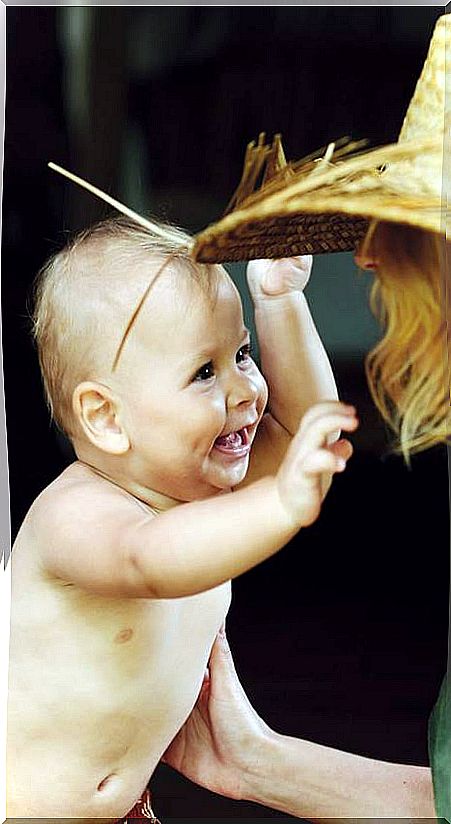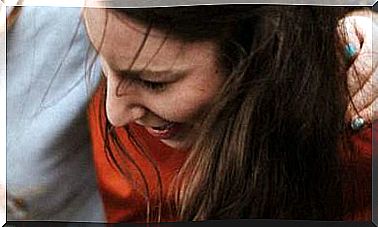Natal Ecology: Do You Know How To Truly Love Others?
If as children we do not receive the love, attention or care we needed, it may be difficult as adults to offer selfless love.

We all long to live in the greatest comfort possible. That means settling in very different sensations for each one of us: for some, comfort is synonymous with economic security, for others it is living as a couple, or having a loving family or being surrounded by friends, not having obstacles in the daily routine, acquiring a nice house or travel in freedom.
No matter where we establish wellness, we all want to achieve it.
Now, we are probably not in this world just to feel comfortable. It is also essential to draw an invisible line between ourselves and our neighbor to love, accompany, accompany and facilitate the lives of those around us. In other words, to collaborate in favor of the comfort of the other, not just their own.
Feel loved
Why is it not obvious to us to prioritize the comfort of the other to the point that we are often – and without realizing it – more attentive
to seeking personal well-being?
Let’s look at the original design of our species: human creatures are born immature, unfinished. This means that for a relatively long period (throughout childhood) we need someone to satisfy our millimeter needs in order to survive, since we do not have the resources to provide for them.
At that moment the subtle gulf begins between our needs and what we receive – or do not receive – from the person who nurtures us.
The drama is great, since our civilization maintains a phenomenal ignorance regarding the nature of each child, forcing each creature to adapt to the needs of adults, instead of adults adapting to the requirements of the little ones.
Why is it the beginning of a tragic continuum?
Because childhood is the period in which children expect to be compensated, cared for, protected, protected, loved, nurtured, understood and accompanied.
All these experiences together translate into one: the experience of feeling loved.
The ability to love
Suppose we have felt completely loved as children. Then we grow up reaching adolescence, which is the period in which we rehearse ways of loving, precisely having to our credit the verification of living in love. And later, we enter young adulthood.
Adulthood is the period provided by our original design to love frankly. To love your neighbor. To love those around us. Love above all things. Loving the other by providing comfort without worrying about our own.
Now, said like that, it seems very beautiful, but we do not understand why this flow of love towards the other does not emerge from our interior – spontaneously. Rather, we are busy trying to feel good sometime.
Why is this happening? Because during our real childhood what was foreseen by the original design of our species did not happen to us.
Family bond
As children, we were attentive to the well-being of mother, father or grandmother. We didn’t want them to fight.
We did not want to be punished, we did not like going to school, we were afraid of the grandfather who lived with us, the nights were long and dark, we could not express our feelings, we were humiliated or mistreated, we felt alone or of little value.
We did not understand what was happening in our family, sacrifice was the supreme value and we had to respond with absolute respect to any adult who was by our side, even if they hurt us.
A necessity out of its time
The point is that we have inevitably grown -even though the emotional circumstances have been adverse-, we have gone through adolescence and reached adulthood. However, we reach middle age still waiting to be compensated, loved, taken into account, registered, respected, cared for and sheltered.
This tremendous mess is a derangement of the times.
There was a time to receive love, and then there would be a time to give love. Now, since we have not received it to the extent that we needed it and our time is up, we find ourselves today pretending to receive the flow of love and attention that we would have deserved to obtain in the past.
This is how we are today: attentive to our own childhood needs – I insist, not satisfied in the past – and without resources to offer our neighbors the
abundant capital of affection and benevolence that we have to give away.
Hungry for affection
What can we do today, if we are hungry for love? Much. Especially if there are children in our environment: whether they are our own children, nephews, grandchildren, students or children of friends.
We can regain our capacity to love if we reestablish the habit of respecting, supporting, pacing and understanding any child who is in our daily circulation environment.
This is an invitation to observe, order and assume the affective reality from which we come, in order to then be able to make decisions that bring us closer to the original design with which we have arrived in the world, helping to take the reins to return to a kinder civilization, loving, altruistic and ecological.
What was the first; the egg or the chicken?
I choose to start with the hen, who are usually mothers. Why? Because the egg is the newborn child, which depends on our resources as mothers and the ability we display to enter into emotional fusion intuitively with the child as it is born. And to, above all, pay attention to him.
Because – if we put our hands to our hearts – we will recognize that all mothers feel the child, since the phenomenon of emotional fusion
is also part of the original design of the females that we have given birth.
Believe what we feel
In fact, we women believe that we go crazy during the puerperium as a result of the emotional intensity that we share with our children.
Therefore, it is real that we feel the child. The problem is that we do not give credit to what we feel. And to top it all, we detract from what the child – in different ways – shows us.
We are all born equal
This is the reason why I insist that it is essential that women who have been mothers are responsible for the future of humanity and invite other adults to accompany us.
In fact, the most reliable reference we have is the child as it comes into the world. All children are born equal. Today, 10,000 years ago
and 234,658 years from now. In Singapore, in Berlin, in Algiers, in New Delhi, in Rio de Janeiro, in Moscow, in Madrid or in Yaoundé.
It does not matter the time or the geography, because hundreds of thousands of children will continue to be born as planned by our species.
Natal ecology
If we only dedicate ourselves to taking care of the ecology with which each child comes into the world, just as some of us try to take care of the ecology of the planet, life would be much simpler, harmonious, pleasant and prosperous.
We just have to observe, respond, endorse and guarantee to each child that we will do for him what he is claiming.
That alone would be enough to install among all of us a civilization millimetrically adapted to the needs of young children, and in which each community decision was taken into account according to the well-being of young children.
I am sure that if we trusted the instinctive nature of each child, we would regain common sense, joy and prosperity. And, above all, we would
recover something that we have lost many generations ago: the ability to love others.









